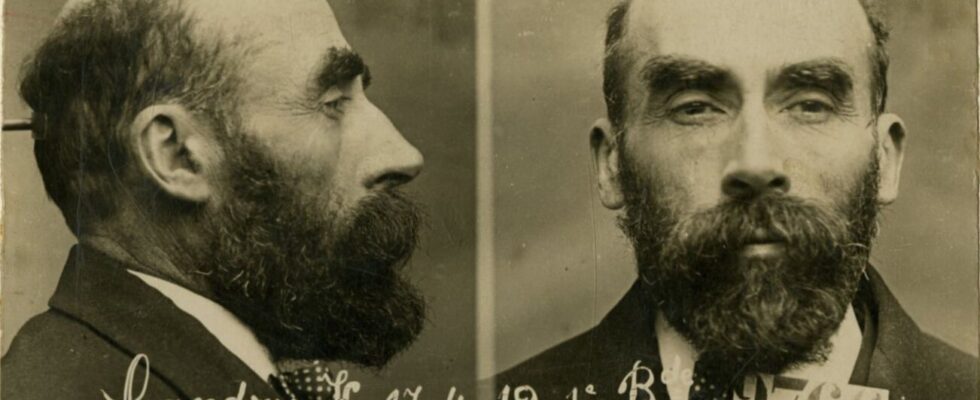Unforgettable for the family of the victims, the Henri Désiré Landru affair no longer made the headlines but marked the years 1910 and 1920. Back to this sordid affair worthy of a tale by Charles Perrault.
“Me? I made someone disappear? Well, gosh! If you believe what the newspapers say!” On November 7, 1921, Henri Desire Landru, son of the modest driver Julien Landru and the laundress Flore Henriquel, appeared before the court of Versailles for the murder of ten women, 1915–1919. According to the prosecution, the fifty-year-old would have lured his victims by promising them marriage, before defrauding them of their possessions, murdering them one by one and having their bodies disappear in the stove of his villa in Gambais, in the Yvelines. A real spectacle led by a charmer with a provocative humour, the trial attracts all of Paris. But Henri Désiré Landru denies, and will deny until his execution, on February 25, 1922 in Versailles. Yet the Ted Bundy of France would have committed the terrible crimes of which he was accused…
It all started in 1914. Already a fine master of fraud, a lover of false identities, a collector of fines and prison sentences, Henri Désiré Landru met Jeanne Cuchet, a 39-year-old seamstress and widow whose gaze he meets in the Luxembourg Gardens. Shortly after, Jeanne and her 17-year-old son André disappeared around the town of Vernouillet… Henri Désiré Landru continued on his way. Although married to Marie-Catherine Rémy since 1893, the man signs up for various matrimonial announcements. Under more than 90 pseudonyms, he sees up to 283 women. Several times, he manages to get his hands on their bank accounts by getting them to sign powers of attorney, after which he makes their bodies disappear in his furnace. Moreover, the neighborhood will be surprised by the nauseating smell emanating from the chimney of the bearded man next door…
A round trip for him, a one way trip for them
In May 1918, the mayor of Gambais received a disturbing letter, in which Madame Pellat came to hear from her friend Anne Colomb, settled in Gambais shortly after her fiancé, Monsieur Dupont. The problem is that he has never heard of this Mademoiselle Collomb… A few weeks later, it is the turn of a Mademoiselle Lacoste to express her concern to him about his sister. Celestine Buisson, who has not been heard from since moving to Gambais with her fiancé, Monsieur Frémyet. There again, the mayor has never met the woman mentioned… His curiosity piqued, the mayor puts the two families in contact. These discover that Dupont and Fremyet were certainly the same man, and that the two disappeared had responded to matrimonial advertisements published in March and May 2015 In The Echo of Paris and in The newspaper.
Henri Désiré Landru was apprehended on April 12, 1919 in Paris, after being recognized by a neighbor of Miss Lacoste under the name of Lucien Guillet. At his home, the police discover a small notebook on which are inscribed eleven names, including those of Anne Collomb and Célestine Buisson. 1.5 kg of remains of charred human bones and 47 fragments of teeth were found in his villas in Vernouillet and Gambais, and the investigators noted a most dismal detail in the finances of the accused: when traveling by train with his fiancées, he bought a return ticket for him, a one-way ticket for them.
“That, Master, is my little baggage…”
“If the women I have known have something to reproach me for, they only have to file a complaint!” On November 30, 1921, Henri Désiré Landru was sentenced to the guillotine after a colorful trial marked by the eloquence of the accused and the incredible number of curious people who came to attend the hearings. On the day of judgement, The Little Parisian recount : “The previous day’s record is beaten, record of crowding and curiosity: it’s an indescribable crowd. We fight for chairs; two ladies slap each other…” The accused, he denies until the last second. On the day of his execution, February 25, 2022, Landru refuses the glass of rum and the last cigarette offered to him, claiming that “It’s not good for your health”. Just before going up to the scaffold, he refuses one last time to his lawyer to tell him the truth: “That, Master, is my little baggage…”
